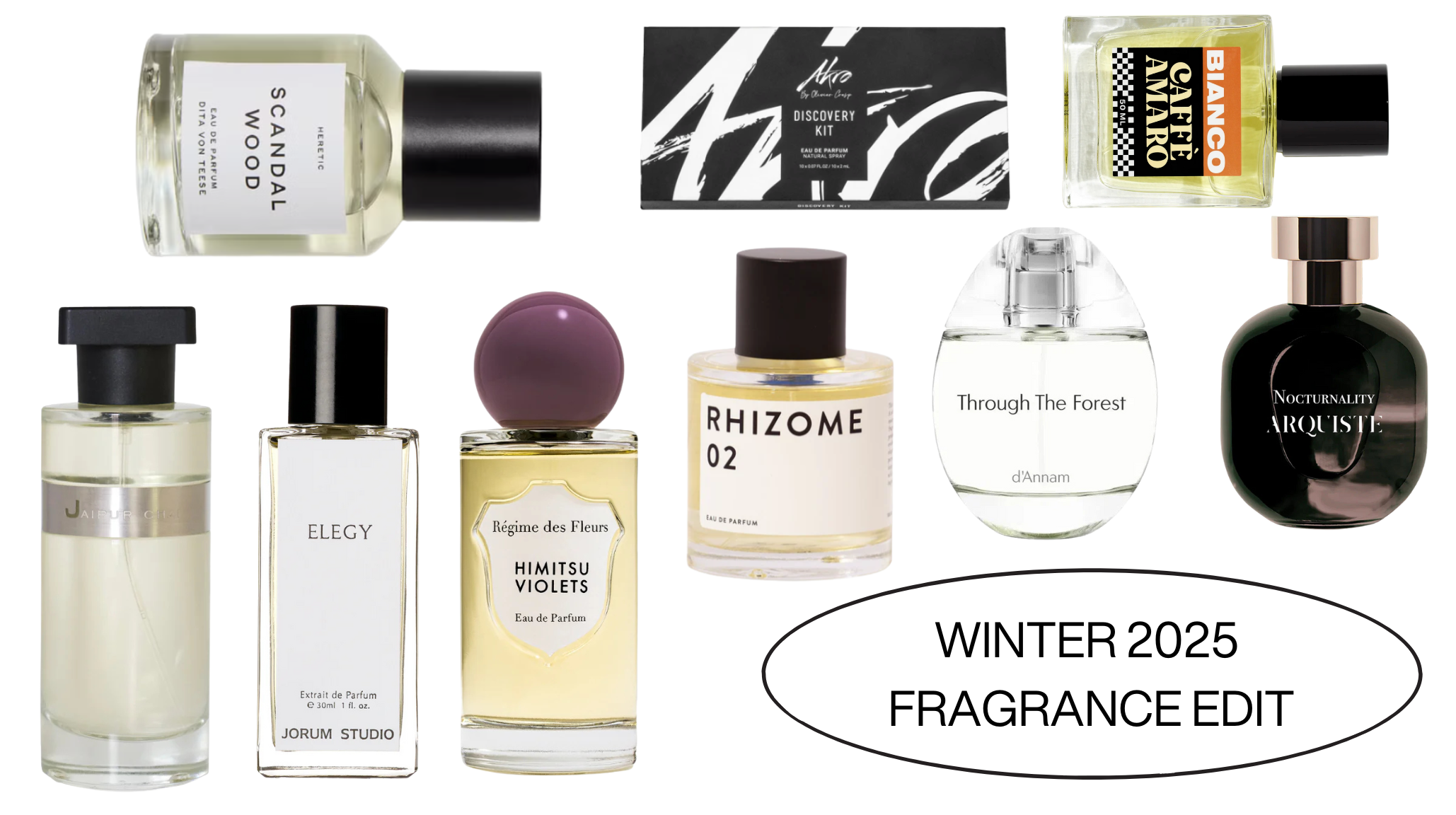Social media has been a part of my life for longer than it hasn’t, and I can’t remember a time when it didn’t occupy my thoughts. Over time, my relationship with it has evolved. My love affair began casually as a user on Vampire Freaks (RIP) and Xanga. Eventually, like every scene queen, I became a wannabe Myspace coder, devoting hours to building the perfect profile, then immediately changing it days later. Along the way, I went from casual user to creator, posting styling videos on YouTube and eventually clickbait takes on body positivity on Instagram. Today, you can find me deep in Reddit under one of several alt accounts, or in my corporate gig as the person building strategy behind brand accounts for global brands.
Social media has become my career. I’m a social strategist and analytics manager, slowly manifesting a role in product management for social media products. Admittedly, I never envisioned social media as part of my professional journey, but my career has led me into a world of metrics, creative briefs, and negotiating influencer campaigns worth double my salary—and I couldn’t be more geeked about what I do. I’ve gotten lost in rabbit holes, trapped in echo chambers, and fought in comment sections—but through it all, I’ve become even more entrenched in this digital world, which has led me here, to where I am today, writing about it.
My mind is constantly toggling between two modes: the strategist who wants to gameify everything, and the cynic who sees the darker side of these platforms. While I believe in the power of social media, I also recognize the urgent need for regulation. One of the few constants in this space is change: from trends (like the brat-to-demure switch-up) to creators rising and falling (think Michelle Phan) to ego-bruised billionaires on ketamine dismantling entire platforms overnight. With legislation like the Kids Online Safety Act looming, the landscape is shifting even faster. The way we use social media, both as casual users and content creators, is about to pivot drastically.
The future I envision for social media? Fragmented, immersive, and centered on communities.
The Fragmented Future: Platform Diversity
Beyond Social Media: The Push for Long-Form Content
The Regulatory Future: Stricter Guidelines for Influencers and Big Tech
The Pay-to-Play Era: Challenges for Small Businesses and Creators

The Fragmented Future: Platform Diversity
Different communities and generations thrive on different platforms. Boomers have turned Facebook into a generated wasteland of images, Millennials are #blessed on Instagram, and Gen Z lives and dies by a rapidly increasing trend cycle on TikTok. Gen X floats between platforms, while Gen Alpha continues the trend of unmonitored internet usage—35% of parents report their children watch YouTube videos several times a day on average.
We’re all living in different digital spaces, likely experiencing drastically different algorithms that we’ve trained over time. I used to think that highly curated algorithms were helpful—and in some ways, they still are—but they’ve increasingly become echo chambers, narrowing people’s perceptions of the world. Our feeds divide us, sending us down more rabbit holes, isolating us further.
This fragmentation isn’t just a generational divide. It’s cultural, political, and algorithmic. While decentralization and smaller niche platforms could offer a solution, there’s a risk. Some users won’t be tech-literate enough to fully understand the implications of decentralization (said with love).
Decentralized social media platforms offer the promise of niche, community-driven spaces, but they also come with significant risks. Without centralized oversight, content moderation becomes inconsistent, allowing harmful content, misinformation, and hate speech to spread more easily. Privacy and security concerns are heightened, particularly for users who may lack the technical knowledge to manage their own data or understand the implications of decentralization. These platforms can create fragmented echo chambers, deepening societal and political divides, while also posing challenges for legal accountability across jurisdictions. Furthermore, the lack of a clear monetization model raises concerns about long-term sustainability, and the user experience may be difficult for those who aren’t tech-savvy, creating barriers to entry for many.
However, I do think we’ll see a rise in community-centered platforms, reminiscent of early internet forums—places where users can meet like-minded people and create micro-communities that feel more authentic. What could possibly go wrong?
.png)
Algorithms and Echo Chambers: A Reality Check
As we each experience social media through our own personalized feeds and realities, it's becoming increasingly clear that algorithms will continue to divide us. This divide becomes especially dangerous when politics or identity politics come into play. Meta, for example, launched its first third-party fact-checking partnership in 2016 to combat political misinformation, but it got off to a slow start. In my opinion, Meta ignored calls for more robust action for far too long. The platform simply lacks the infrastructure to effectively manage the overwhelming volume of content it’s tasked with monitoring—especially with the growing influence of bots.
In an attempt to control misinformation earlier this year, Meta rolled out additional filters for political content. This decision sparked countless think pieces, with many questioning the validity of these efforts and labeling them as censorship. Users were automatically opted into seeing less political content through a new settings filter. Some major accounts and activists—who aren’t held to any journalistic standards of authenticity—reported experiencing app crashes when trying to change the settings or claimed they didn’t have access to the feature at all, which only fueled further concerns about censorship.
While I understand the frustration, I genuinely think this is where having some knowledge about software engineering helps. The reality is, many tech companies, including Meta, are operating with reduced engineering capacity and knowledge gaps from more senior engineers being laid off (problems stemming from Meta’s own corporate greed), which means more bugs and issues can arise when building out new features. Though I don’t know the exact details of this feature’s development, automatically opting in users was likely the simplest solution. And if I had to speculate, this feature probably had a tight deadline, especially with the upcoming U.S. elections. There are likely more business reasons behind how it was rolled out, even if Meta didn’t communicate it well.
This September, Meta also announced changes to how it predicts what political content will trend, stating, “...we now rely less on engagement signals—such as how likely you are to comment on or share content—when ranking political content in Feed since we've found they are not reliable indicators that the content is valuable to someone.” While these filters and fact-checking efforts are steps in the right direction, there’s still a lot to improve—specifically, clearer guidelines on what constitutes political content, more attention to misinformation spread by paid ads, and better communication with users overall.

The Rise of New Platforms
While I've focused a lot on Meta, I do think we're on the verge of another boom in social media apps—especially if interest rates drop and all the laid-off engineers finally have time for passion projects (kidding, they’re definitely building AI models). People are fatigued with the major players and are craving platforms that focus on community-building. Since Twitter became, well... X, many users are left without a real alternative. Threads has gained some traction, but it hasn’t captured Twitter's magic, probably because it's tied to Instagram—people need a place to snark anonymously.
A world with more platforms could be really interesting. I imagine these new platforms will develop their own unique cultures and communities, much like forums did back in the day. Overall, people want more authentic social media experiences, places where they can find like-minded people. What could possibly go wrong
Beyond Social Media: The Push for Long-Form Content
I think we’re going to see a shift towards more blogger-style content, with creators expanding beyond social media platforms and building out Substacks, newsletters, blogs, and their own websites. In a world where you can buy a blue checkmark, bot followers, or likes, suddenly everyone is an “expert”—with no real credentials to back it up. The rise of short-form content has made it harder to have nuanced conversations online. People are craving more depth, thoughtfulness, and a slower pace, but social media just doesn’t provide that right now.
I believe we’ll see the return of the blog as a space for creators to share long-form content and build more meaningful connections with their audiences. This doesn’t mean creators will abandon social media entirely. Instead, they’ll use it to gather a broad base of followers and push them towards more curated, thoughtful content off-platform. Authenticity is going to matter more than ever, and creators will want spaces they can control to have deeper connections with their communities.
Within this shift, creators will need to explore new methods of monetization, especially as programs like the TikTok Creator Fund have been heavily criticized for small payouts. On top of that, mounting regulations and stricter FTC guidelines (more on that below) will force creators to rethink how they promote products on social media. I also think we’ll see an uptick in deceptive practices—like someone using a blush while talking about something completely unrelated, but keeping the product in clear view the entire time. Sadly, there’s a lot of social media illiteracy, especially when it comes to paid partnerships and disclosure, and people with parasocial relationships with creators may not always catch on. This lack of awareness is only going to make these deceptive practices more common and harder to address in the future.

The Regulatory Future: Stricter Guidelines for Influencers and Big Tech
Mounting regulations will continue to reshape the social media landscape, and with FTC chair Lina Khan—a millennial and the youngest person ever in the role—leading the charge, big tech and influencers are feeling the pressure. Khan has made it clear that she’s not here to play, targeting anti-competitive practices, privacy violations, and deceptive marketing. In 2022, the FTC successfully blocked Nvidia’s acquisition of ARM Holdings, and this was just the beginning.
Influencers are also firmly in the FTC’s crosshairs. New guidelines now require influencers to disclose any financial, employment, personal, or family relationships with brands. It's no longer enough to slap a “#ad” on a post; transparency is key. And while some influencers are still dragging their feet on compliance, the writing is on the wall—enforcement is going to get tighter, and penalties for non-disclosure will likley grow harsher. Good, honestly. It's deceptive to mislead your audience, and transparency is essential if you want to build trust in a space where anyone can buy fake followers or a blue checkmark.
Meanwhile, big tech companies like Meta are bracing for a wave of antitrust cases and increased regulatory scrutiny. We could see new rules that drastically change how platforms operate—from more robust data privacy laws to stricter regulations on political ads. These changes will impact both creators and the platforms themselves, forcing them to rethink their business models. As platforms face growing legal challenges, creators will need to diversify their digital presence, ensuring they aren’t at the mercy of sudden regulatory shifts or platform policy changes.

The Pay-to-Play Era: Challenges for Small Businesses and Creators
As social media continues to evolve into a pay-to-play model, small businesses and creators face growing hurdles in gaining organic visibility. Platforms like Instagram and Facebook now prioritize paid ads and promoted posts, making it harder for smaller players to get noticed without coughing up cash. This shift is a nightmare for small businesses that have long depended on organic reach to connect with their customers, and the increasing cost of digital ads only adds to the struggle.
The situation gets even more complicated with the FTC’s stricter guidelines around advertising and paid partnerships. Small businesses and creators will need to stay sharp about compliance, while also navigating the rising costs of gaining visibility. As social platforms turn into gated communities where visibility comes with a price tag, it’s more important than ever to diversify your digital presence. Relying solely on social media is a risky game, and those who don't evolve might get left behind. Blogs, newsletters, and owned websites are becoming crucial lifelines, giving small businesses and creators control over their content and audiences. The era of depending solely on social media for success is rapidly fading—adaptability and transparency will be the keys to thriving in this shifting landscape.
***
All this to say, I love social media, but I also hate it. It’s revolutionized the way we communicate, helped creators and brands thrive, and kept us endlessly entertained—but it’s also torn people apart, spread misinformation like wildfire, and trapped us in never-ending echo chambers. I used to be more idealistic about it all. Now? Not so much.
The platforms we’ve relied on for years are breaking under the weight of their own influence, and the future feels as fragmented as our feeds. Whether we like it or not, social media is about to change again—and probably not for the better. We’ll see more niche platforms, more regulation, and more attempts at controlling narratives. And while part of me is hopeful for a future that’s more community-driven and authentic, another part knows that the same forces shaping our current digital world—corporate greed, social media illiteracy, disinformation, and performative activism—aren’t going anywhere.
But that’s the nature of social media, isn’t it? It’s a love-hate relationship, and I’m here for the ride—whether it takes us somewhere better or somewhere worse. So, I’ll keep writing and posting about it, because if we’re all going down this rabbit hole together, I want the attention. Let’s be real—at the end of the day, isn’t that why we all post? For the attention.
***
Think I’m interesting enough? Consider subscribing to my free monthly email newsletter!


.jpg)







